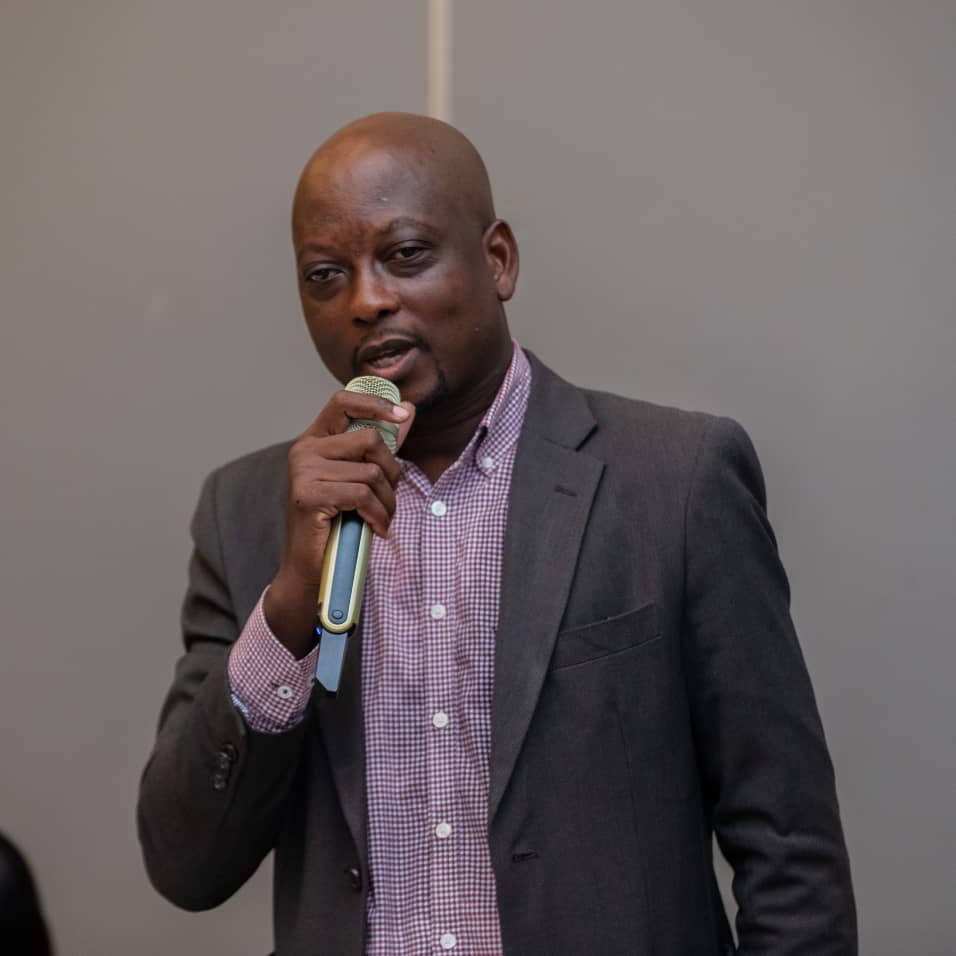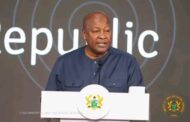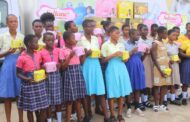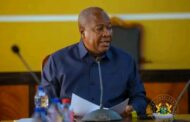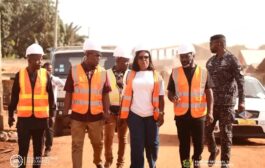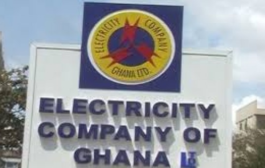Global Institute for Mindset Transformation and Attitudinal Change (GIMTAC) has hinted that Africa needs positive transformation of mindsets and attitudes to drive Africa’s sustainable development through collective responsibility.
It has therefore resolved to change the African mindset from one of dependency to that of self-sufficiency and become a global player and partner of choice through collaboration, innovation and accountability.
This was contained a communique issued at the end of the 1st international conference on African mindset transformation and system thinking on the theme “Renewing the African Mindset towards Sustainable Development of Africa”.
The conference was organized in partnership with other bodies including Kwame Nkrumah University of Science and Technology (KNUST), State Interests and Governance Authority (SIGA), Office of the Diaspora Affairs, Jubilee House, Spear Institute and AfCFTA Policy Network.
To the Global Institute for Mindset Transformation and Attitudinal Change (GIMTAC) and supporting bodies, Africa is endowed with remarkable resources and assets, including over 20% of the Earth’s total land area, 27% of the world’s 195 countries, a youthful population, with 70% under the age of 30 and a median age of 18 years.
Others include 18% of the global population, accounting for 1.37 billion people, 90% of the Global deposit of Uranium, 40% of the global deposit of Gold, 30% of the world’s Global deposit of timber, 90% of cobalt, 70% of cocoa, 92% of Platinum, and 80% of Chromium.
They expressed that, regardless of the aforementioned remarkable resources and assets, many of the people of the continent are among the poorest in the world, a situation attributed to certain prevailing mindsets and attitudes.
They identified Poor and unethical leadership, Indecisiveness and delayed decision-making by authorities, Selfishness, corruption and rent-seeking mindset – “what-is-in-it-for-me” syndrome, Inadequate belief in ourselves and low appreciation of our products and Acceptance of mediocrity, low standards and values.
The rest are Tribalism, partisanship and divisive tendencies, A defeatist ‘Can’t do’ mindset, Resistance to new ideas, entrepreneurship, and innovation, Abuse of trust and increasing mistrust for each other, Resistance to transparency and accountability at all levels,Jealousy, retrogressive and ‘pull-him-down’ attitude and preference for foreigners to compatriots.
Others are Poor work ethics, conduct and unprofessionalism, Dependency and entitlement mentality, and Poor implementation of plans, programmes and projects, and weak maintenance culture.
The group also observed that the afore-mentioned mindsets and attitudes can be attributed to a large proportion of the populace’s struggle for basic needs which fuels short-term and immediate survival induced thinking.Issues like limited emphasis on critical thinking, self-confidence, and innovation during formation processes, resulting in weak values, defeatist attitudes and inadequate belief in oneself and contradictory customary and constitutional laws that hinder complementarity, efficiency and progress.
Others are customs and practices that discourage questioning authority or embracing change, cultural practices that encourage undue submission to authorities, even when they are unethical, corrupt and counter-productive.Inadequate scrutiny and demand for accountability from authorities, weak educational systems and curricula that focuses on memorization, short-term learning against long-term growth, adoption of multiple-choice questions forms of examination due to large class sizes, instead of competency, analysis and problem-solving based approach.
They acknowledged that these mindsets and associated causes can have adverse effects such as exposure to environments where negative mindsets and attitudes thrive leads to an erosion of ethical beliefs and values among others.
They have therefore proposed the following targeted interventions and urge governments, institutions, organizations, and individuals to pursue them diligently including the appointment of qualified and competent persons of integrity to run key institutions, especially public ones, to ensure good corporate governance practices and success, and to serve as an example for private institutions.Institutional and political leaders should be challenged to lead by example and subjected to strict scrutiny to ensure transparency, accountability and productive performance, while fostering collaboration with all relevant partners.
The educational system should shift from memorization to a pragmatic one that promotes Critical Thinking, Problem-Based Learning (PBL) Approach, and Innovation. Capacity of training institutions and trainers should be strengthened at all levels, including civic and adult education, to inculcate a transformed mindset founded on appreciation of our worth and self-determination in all spheres of life.
This should include strengthening our core values, principles and virtues such as patriotism, trustworthiness, equality and equity, as well as eliminating all forms of prejudices.
The group argued that, positive mindset and moral education should constitute the basis of our education system at home and in schools, stressing on African culture, languages and good traditional values and principles.Children and the youth should be socialized in learning environments (home and school) that open their minds to moral and ethical conduct, rooted in moral education, the pursuit of excellence, and a deep respect for African values.
This should begin at home by strengthening family and communal values. Thus, the formation of the African child involves all – parents, family, communities and teachers, and by aligning efforts at home, in schools, and within communities, we can nurture a generation equipped with the attitudes and skills needed to drive Africa’s development.Contradictions between various laws in the country and sections of the constitution, especially between customary and political administrative laws should be identified and addressed.
This would eliminate needless conflicts, litigations, waste of resources and the related impact on the development process of the country.
Institutions and individuals should leverage on prevailing technological advancement to improve their efficiency, effectiveness and profitability, where applicable.
Related security and health precautions should be taken to avoid any hazards, especially in the acquisition and deployment of Artificial intelligence (AI).
Develop programmes to reduce poverty through skills training, entrepreneurship support, and equitable access to resources. Promote patronage of “Made in Africa” products to increase appreciation for local products and industries, fostering a culture of innovation, entrepreneurship and self-reliance hinged on inclusive economic growth, social justice and environmental sustainability. Pursue cultural awareness programmes to challenge negative mindsets and attitudes, focusing on self-belief, innovation and collective progress, using success stories of African innovators, inventors and achievers.
Strengthen local, national and regional mechanisms to prevent and resolve conflicts, furthering community dialogue to rebuild trust and cohesion.Leverage on Africa’s youthful population by promoting leadership and mentorship programs that encourage youth participation in decision-making processes.
Empower women, youth, and marginalized communities through equitable access to opportunities and resources, enabling them to contribute meaningfully to societal progress.
Efforts must also focus on dismantling cultural and societal barriers to gender equality and promote inclusivity.
Develop an African mindset that appreciates African Unity and Oneness through educational, cultural and economic programmes e.g. AfCFTA initiative and intra-African cultural exchange programmes.
An in-depth study and promotion of the beauty and power of the cultural diversity on the continent should also be pursued across the Region. Furthermore, adoption of a common currency and encouraging multilingual studies in our educational institutions should be deemed critical in tackling trade and language barriers.
These would enhance cross-national ties and facilitate the realisation of the continent’s full economic, political, social and educational potential.
To this end, we resolve to launch the movement for enhancing the African mindset and attitude for sustainable development of the continent at all levels, to spearhead the above proposed interventions and pursue the promotion of a positive mindset and attitudinal development that prioritize collective progress over individual gains.
The Global Institute for Mindset Transformation and Attitudinal Change (GIMTAC) has further hinted at advocating for comprehensive child development, covering physical, mental, cultural, moral, educational, intellectual and emotional dimensions, etc.
Others include ensuring implementation of laws and policies that address educational inadequacies, systemic poverty and weak governance., demand transparent, accountable and ethical leadership at all levels.Others are supporting grassroots mindset and positive attitudinal transformation to strengthen community unity, build resilience and ensure sustainable development, commitment to continuous stakeholder engagement and leverage on strong media partnerships to expedite mindset and attitudinal transformation on the continent, and Institute strong and efficient monitoring and evaluation mechanisms to ensure proposed interventions are implemented effectively.
Towards enhancing mindset and attitudinal change on the continent, they have further pledged to establish a Mindset Renewal Network (MRN) for continuous dialogue, organize regional conferences and workshops, develop policy briefs and recommendations, and launch a continental mindset awareness and transformation campaign.
Source:Mybrytfmonline.com/Isaac Akwetey-Okunor



